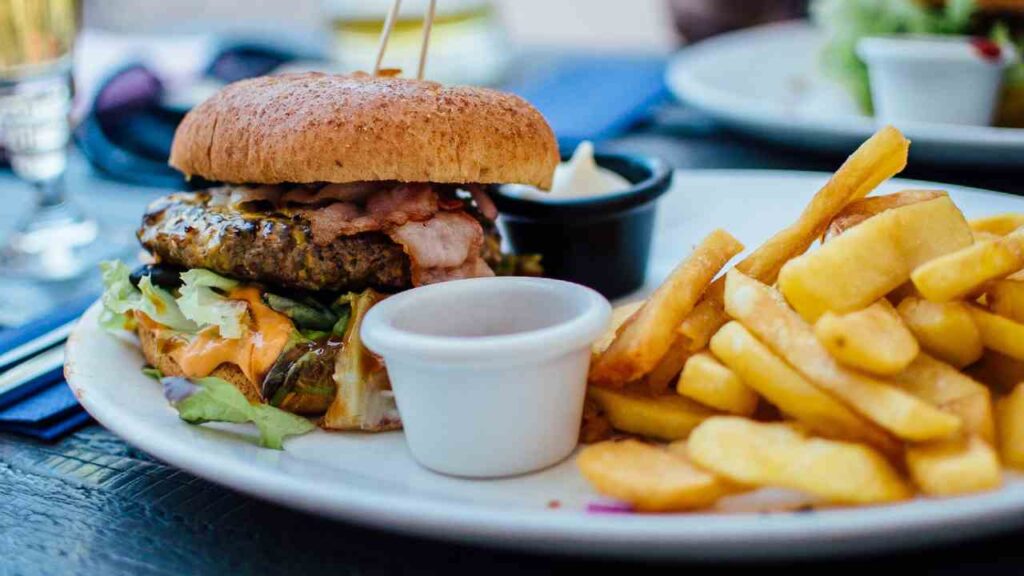Beware! Fatty Foods Increase Weight and Harm Your Health

Beware! Fatty Foods Increase Weight and Harm Your Health
What is Fat?
Fat, also known as fatty acid or lipid, is made up of a combination of three molecules called triglycerides. It is the body’s primary way of storing energy. Some fats, like Omega-3 and Omega-6, must be obtained through diet, known as essential fats. There are different types of fats in food, including saturated fats, unsaturated fats, polyunsaturated fats, monounsaturated fats, and trans fats. Saturated fats come from animal sources, while trans fats are found in processed foods.
Is Fatty Food Harmful to Your Health?
Many people don’t realize that not all fats are harmful to our health. In fact, fats are important for maintaining a healthy body system. Therefore, it is essential to get enough fat to stay healthy. Some benefits of fats include:
- Fat helps absorb vitamins A, D, E, and K
- Fat ensures healthy skin
- Essential fats like Omega-3 are important for heart health
- Healthy fats from plant sources help lower bad cholesterol (LDL)
- Fat adds flavor to food
- Fat helps you stay full for longer after eating
- Fat fills fat cells to provide warmth in cold temperatures
However, we need to choose our fat sources wisely. If we consume more unsaturated fats and trans fats, then yes, fatty foods can harm our health. Saturated fats are typically solid at room temperature. Trans fats are formed through the hydrogenation process of vegetable oils, which is often used to extend shelf life. The drawbacks of fatty foods containing saturated fats include:
- Increases your risk for heart disease – Too much saturated fat can raise cholesterol in your arteries. Saturated fat increases LDL cholesterol levels. High LDL cholesterol can raise your risk for heart disease and stroke.
- Weight gain – Consuming more fat than your body needs adds calories to your diet, making it easier to gain weight. All fats contain 9 calories per gram, more than double the amount of calories per gram for carbohydrates and proteins.
High-Fat Foods
Here is a list of fatty foods that are good for you:
- Avocado – Contains oleic acid, a fatty acid with various health benefits.
- Dark Chocolate – Rich in antioxidants, iron, magnesium, and more. Great for heart health.
- Eggs – Packed with a variety of nutrients. Choose Omega-3 enriched or pasteurized eggs.
- Fatty Fish – A rich source of Omega-3, such as salmon, herring, sardines, and mackerel.
- Nuts – Almonds, cashews, peanuts, pecans.
- Chia Seeds – Full of Omega-3 and offer other benefits like lowering blood pressure and anti-inflammatory effects.
- Olive Oil – Like avocados, rich in oleic acid, and high in vitamins E and K.
- Coconut and Coconut Oil – High in medium-chain fatty acids, metabolize differently than other fats, reduce appetite, boost fat burning, and provide other health benefits.
- Full-fat Yogurt – Besides good fats, yogurt is rich in probiotics, which are important for digestive health.
Examples of fatty foods to avoid:
- Ghee (clarified butter)
- Fatty cuts of beef, pork, or lamb
- Dark meat chicken and chicken skin
- Full cream milk
- Butter/margarine
- Cheese – While cheese contains calcium, vitamin B12, phosphorus, and selenium, it is a dairy product high in saturated fats. It can be eaten but in small quantities.
- Sour cream
- Fried foods – Rich in trans fats
- Vegetable shortening
- Biscuits
- Cakes
- Processed snacks
- Ice cream
Written by Nurul Izzah.
Reviewed by Doctoroncall Panel Doctor.














